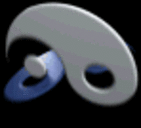Hello!
I am going to be teaching a pure data workshop next month in April, and wanted to turn the output of my workshop into a free tutorial to offer as a tutorial/walkthrough. It would be posted in the repo, and hopefully shared elsewhere.
The workshop is for beginners learning to use Pd, and to give them many different ways they can generate and manipulate numbers. I often see workshops showing people objects like [osc~] and teaching them how to use a vslider to change pitch, but waiting until later to really encourage people to learn to think creatively about number creation and data flow.
My idea is to create a large Pd patch with sub patches acting as categorized areas for people to play and experiment with data flow, and dialogue within the subpatches as comment boxes with additional information provided by the lecturer.
My aim is to cover three different levels within the tutorial:
- Simple objects such as moses, spigot, shuffle/random, pack/unpack, send/receive and the such. Mainly focused on direct mechanics and what ways these objects can be "broken" or generate stack overflows, improper order of operations, etc.
- Turning these concepts into basic tools, and introducing logical operators.
- Providing clear examples as to why these are handy for certain applications (e.g. using pack to send a list of floating point variables to act as a "preset")
I was wanting to ask openly what specific objects, forms of data manipulation, and handy tools you wish someone gave you starting out, and how to offer a variety of focuses in this workshop within a three hour time span. What things do you feel NEED to be there, versus could be supplemented later in one's development? What objects or forms of data flow seem more flexible and capable of multiple applications than one would assume with a basic understanding?
Once I get it all written up I can post, in case anyone wants to supplement their own teaching/give to a friend.



